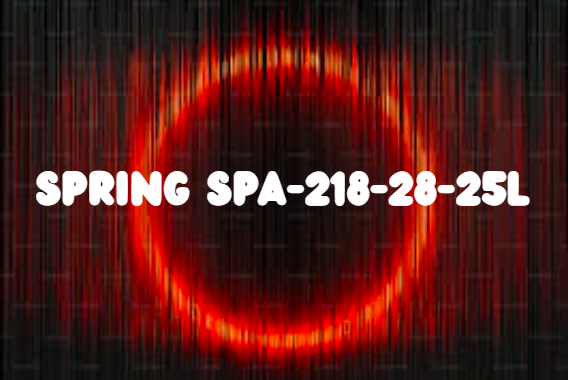Lewy body dementia (LBD) is a progressive neurological condition impacting cognitive function, behavior, and motor skills. It ranks as the second most prevalent dementia type following Alzheimer’s, affecting an estimated 1.4 million individuals in the United States.
The progression of LBD unfolds across seven stages, categorized into mild, moderate, and severe phases. Initially, individuals may encounter mild confusion, memory issues, and behavioral changes. As the disease advances, symptoms can intensify to include hallucinations, delusions, and motor impairments. In the severe stage, significant cognitive decline, communication difficulties, and challenges with daily tasks may arise.
The 7 stages of LBD are:
- Early Symptoms
- Mild Cognitive Impairment
- Mild Dementia
- Moderate Dementia
- Moderately Severe Dementia
- Severe Dementia
- End-Stage Dementia
Progression through the 7 stages of LBD doesn’t always follow a linear path. Symptoms can vary between individuals and across different stages, with the disease advancing at different rates for each person. Given the progressive nature of LBD, it’s crucial to seek medical guidance and support promptly.
STAGE 1: EARLY SYMPTOMS OF LEWY BODY DEMENTIA
The initial stage of LBD is characterized by subtle symptoms that may be challenging to identify. These signs may include shifts in behavior, like heightened anxiety, depression, and struggles with decision-making.
Many individuals may notice changes in their sleep patterns, such as difficulty falling or staying asleep, alongside vivid dreams. Memory difficulties, particularly in recalling recent events, might also manifest. Additionally, physical symptoms like tremors, stiffness, and reduced mobility may be present.
These symptoms share similarities with those of other conditions such as Alzheimer’s or Parkinson’s. Hence, seeking medical advice when experiencing any of these symptoms is crucial. Early diagnosis and intervention can aid in slowing the disease’s progression and enhancing quality of life.
STAGE 2: MILD COGNITIVE IMPAIRMENT
Stage 2 of LBD is identified as mild cognitive impairment (MCI). At this phase, individuals may observe a decline in cognitive functions, including memory, language, and problem-solving abilities. Tasks demanding concentration, such as solving crossword puzzles or recalling item lists, might become challenging.
Difficulties with multitasking and occasional confusion may also emerge. Despite these cognitive changes, individuals in this stage may still maintain independence and not necessitate assistance with daily tasks. Nonetheless, it’s crucial to remain vigilant for any shifts in behavior or cognition, as they could signify further decline.
STAGE 3: MILD DEMENTIA
In the mild dementia stage, which is Stage 3 of Lewy body dementia (LBD), individuals may encounter subtle cognitive challenges. These difficulties could manifest as issues with problem-solving, memory recall, and language comprehension.
Tasks that demand multitasking may become more challenging, and confusion might arise more easily. Changes in behavior, such as heightened anxiety, depression, or apathy, may also become noticeable.
Despite these changes, many individuals may still maintain independence and even continue working, although they might require some support for daily tasks like managing finances and medication routines.
Providing support and empathy is crucial during this phase, as frustrations and feelings of being overwhelmed may surface. With appropriate care and understanding, individuals can still find meaning and fulfillment in their lives.
STAGE 4: MODERATE DEMENTIA
In the moderate dementia stage, Stage 4 of Lewy body dementia (LBD), individuals typically encounter more noticeable cognitive decline, marked by challenges in problem-solving, memory retention, and language usage.
Daily activities such as dressing, bathing, and eating may become increasingly difficult to manage independently. Behavioral changes might include heightened agitation, confusion, and paranoia.
Despite these challenges, individuals may still retain some ability to recognize family and friends and engage in communication with them. Providing a supportive and patient environment, along with necessary resources, is crucial for helping them navigate through these changes effectively.
STAGE 5: MODERATELY SEVERE DEMENTIA
In the moderately severe Stage 5 of Lewy body dementia (LBD), individuals typically experience a notable decline in communication skills and daily functioning. This decline may manifest as increased difficulty in performing routine tasks and expressing themselves effectively.
Confusion, disorientation, and challenges with problem-solving may become more pronounced. Recognizing family and friends could become increasingly challenging, leading to greater dependence on caregivers for support. Despite these difficulties, individuals may still retain some ability to recognize familiar faces and engage in meaningful conversations.
However, they may require more assistance with basic activities like dressing, bathing, and eating. Creating a supportive and nurturing environment is crucial at this stage, ensuring that individuals receive the necessary care and attention to maintain their quality of life.
STAGE 6: SEVERE DEMENTIA
In the most severe Stage 6 of Lewy body dementia (LBD), individuals reach a point where they are unable to communicate or meaningfully interact with their environment. Recognizing family and friends becomes increasingly challenging, and they rely entirely on others for their care.
This stage is marked by a significant decline in physical abilities, including the loss of mobility and the inability to sit up without assistance. Behavioral changes such as agitation, aggression, and hallucinations may also occur.
Despite these challenges, individuals may still experience occasional moments of clarity and responsiveness, particularly to familiar voices or music. Providing a supportive and compassionate environment is essential during this stage, as individuals may still find comfort and moments of joy amidst their struggles.
STAGE 7: END-STAGE DEMENTIA
In the final stage of Lewy body dementia (LBD), known as end-stage dementia, individuals undergo a profound decline in both cognitive and physical capabilities. This stage is characterized by a complete loss of memory, difficulties in speech, and challenges in performing even basic daily tasks. Mobility may also decline significantly, accompanied by heightened confusion and agitation.
Despite the severity of these symptoms, it’s crucial to understand that end-stage dementia doesn’t necessarily indicate imminent death; individuals can continue living for many years with proper care and support. Providing the utmost care and assistance is essential during this challenging phase, benefiting both the individual and their loved ones.
HOW MAUMEE POINT SENIOR LIVING CAN HELP
Understanding the seven stages of Lewy body dementia (LBD) can indeed be challenging, but it’s crucial for providing optimal care to your loved one. At Harmony Senior Living, we empathize with the difficulties of supporting individuals with LBD.
Our team comprises skilled professionals dedicated to delivering top-notch care and assistance tailored to those grappling with LBD. We provide a range of personalized services, including specialized memory care, individualized care plans, and round-the-clock nursing support.
With our compassionate staff, we’re committed to empowering your loved one to lead a fulfilling and dignified life. Reach out to us today to discover how Harmony Senior Living can support you and your loved one through the journey of LBD. We’re here to assist you every step of the way.



